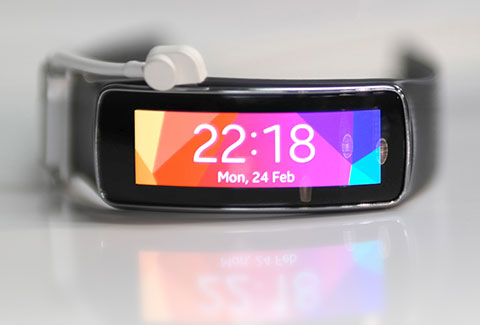
It feels like 2014 is beginning to get into its stride now, signs of life have begun to appear after the abstinence of January and the general mood feels more optimistic than it has done in recent years. We’re ready to move on from recessions and winter – here are some of the stories that caught our eye as the month has developed…

Facebook buys WhatsApp
The big news for social media fans this month was the purchase of Over The Top messaging service WhatsApp by Facebook for a cool 19 billion dollars.
Many were wondering why Zuck would choose to spend so much on a 50 person company when Facebook already has it’s messaging system, albeit one that isn’t growing quite as quickly or benefits from such a clean and simple interface.

It could be a simple way of managing the competition, but more astute (or cynical) observers have spotted that the other main difference is the ease with which fake Facebook accounts can be created, compared with WhatsApp requiring your phone number. And IMEI. And uploading your address book with all the delicious data from your family and friends who might have avoided the social network…

The Samsung Galaxy S5 Launches
For the more security conscious of you, besides avoiding WhatsApp, you can also keep your mobile data secure with a new phone from Boeing. In a minimalist style that Apple would envy, the handset is called simply ‘Black’ and is sealed up even more tightly than Cupertino’s finest. Likely to cause even more envy is the price, yet to be revealed but in previous statements Boeing have noted that military spec secure phones start at around $15,000. Expect to hear from Apple’s legal team soon, Boeing…
For the rest of the world, this month saw the first of 2014’s major smartphones with the Samsung Galaxy S5.
In a very understated launch (compared to last year’s S4) the S5 featured little to shout about, although there were plenty of boxes ticked with its water resistant case and low power setting that kicks in at 10% battery, allowing 24 hours with just voice call and messaging functions.
More interesting was the new Samsung Gear 2, Gear 2 Neo and Gear Fit. Generally lauded as an improvement on the Galaxy Gear (who?), the latest iteration uses Samsung’s own Tizen OS rather than Android and reports on its appearance and functionality are much more positive. It was the Gear Fit, a Nike Fuelband challenger that came as more of a surprise with it’s curved AMOLED screen that, price dependent, could start cropping up in gyms everywhere.


SpaceX Rockets seek to touch down
Meanwhile, Samsung’s main rival in shiny thing production was meeting with serial entrepreneur Elon Musk. The purpose of the meetings has not been made public, but there are whisperings that it could involve Apple and Tesla collaborating to some extent in the world of electronic vehicles.
On a more mundane level this is likely to involve future plans for battery production, something both companies rely on heavily for their products. Other rumours include Apple software being incorporated into the vehicles themselves, especially voice recognition elements such as Siri.
Elon Musk has also been developing his SpaceX rockets to include a ‘hovering’ ability that aims to reduce the impact of launch vehicles after take off. Recently he tweeted photos of the unmanned Dragon supply craft with additional landing legs. Re-usable spaceships then open possibilities for reduced costs in commercial travel, but more excitingly the possibility of manned trips to Mars. Personally we like to imagine that instead of a battery factory in the desert, Apple and SpaceX are joining forces to construct a spacecraft made of Liquidmetal and Sapphire Glass. Hopefully in the shape of a firefly-class ship…
Footage of the Grasshopper test flight from August last year

Full Stream Ahead for BBC on Amazon
Amazon has announced it will re-launch BBC series Ripper Street as part of its online streaming service. The series was cut short after disappointing viewing figures in season two, but a social media campaign with the hashtag #SaveRipperStreet garnered enough attention for the online one-stop shop to invest.
This echoes the recent successes of competitor service Netflix, which pulled off a coup last year when it was screening the final season of Breaking Bad just 12 hours after it was broadcast on TV in the US. More recently followers of the rather brilliant political thriller House of Cards, starring Kevin Spacey as a Southern-drawling Machiavelli, have been rinsing the bandwidth after season two was released in a collective lump for Valentine’s Day.
Providing viable alternatives goes much further to eliminating online piracy than dimwitted attempts to block filesharing sites by various governments. Understanding that piracy is essentially a service industry that viewers mostly turn to when they don’t want to wait six months to see something because they live in a particular country will go much further towards solving the problem.
© 2026 A&M Consulting Ltd t/a Somerset Design. Registered in England and Wales. Company No. 4377058 VAT Reg. 803 6289 32 Site Info